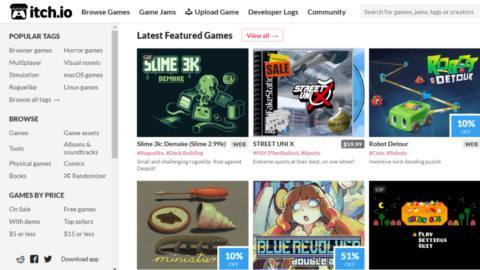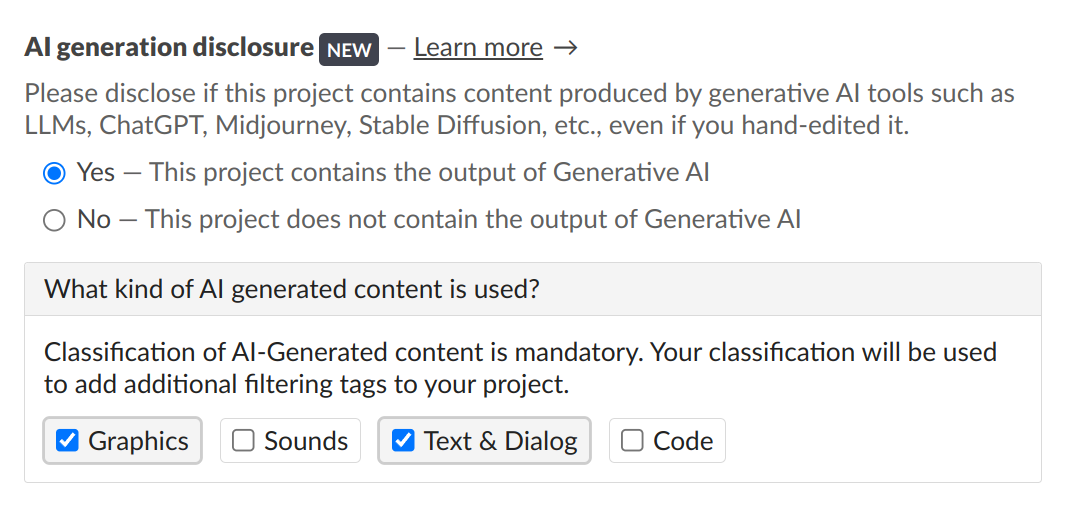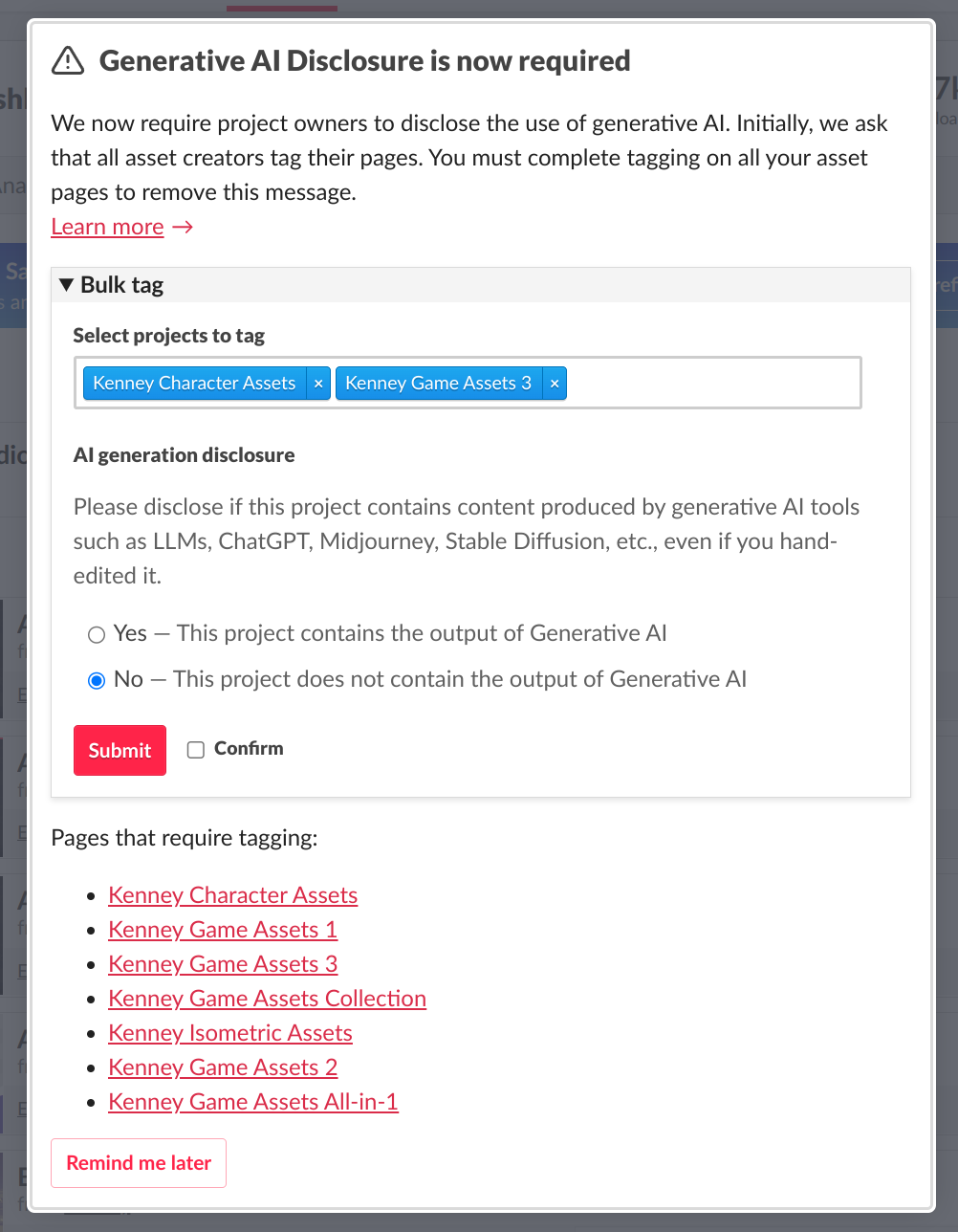
Amid a continuing conversation about AI’s presence in tabletop gaming, online marketplace itch.io announced that it will be requiring all creators on the site to disclose whether their projects contain AI-generated content. Itch.io’s disclosure policy isn’t an outright ban, but will make it easier for tabletop fans who oppose the controversial and ecologically damaging technology to avoid purchasing AI-generated content.

According to the announcement from itch.io founder and CEO Leaf Corcoran, all asset creators on the platform will be required to classify the content they currently have uploaded onto the site. All products that do include AI-generated art will be tagged as such, while users who specifically mark their content as being human-made will receive a “no-ai” tag.
There will be a grace period for creators to categorize their products, with a bulk tagging tool available for publishers who have a high number of products. “Assets comprised of generative AI (even if modified afterwards) that are not tagged will no longer be eligible for indexing on our browse pages,” Corcoran explained. In response to a comment, Corcoran also clarified that if users lie about the presence of AI-generated content in their products, or are seen to omit the disclosure tags, they won’t be removed from the site, but will be removed from indexing on the discovery page, the major way new games are introduced to potential buyers.

On the itch’s quality guidelines page, the company stated the implementation of this policy was “due to legal ambiguity around rights associated with Generative AI content.” Content made from Generative AI systems like ChatGPT, DALL-E, Midjourney, and Stable Diffusion are largely trained on datasets comprised of visual and text-based art without the consent of its original creators, which has been the subject of a number of legal disputes and lawsuits.
This makes itch.io the latest online tabletop marketplace to impose a policy regarding AI disclosure. It follows similar requirements on platforms like DriveThruRPG, which created an AI-content filter in late October, and Roll20, which has an outright AI ban on its marketplace.
